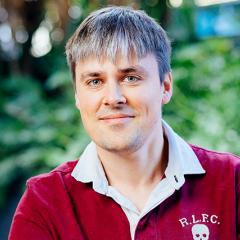New psychoactive substances (NPS) are a complex addition to the international drug problem. They are intentionally developed to circumvent legislation and have been marketed as ‘legal highs’, thereby intimating they are safe alternatives to drugs such as ecstasy, methamphetamine, cocaine and cannabis. Little or no toxicity information is available for these substances, and (co)-ingestion of these compounds has led to hospitalisation and fatalities. Due to the proliferation of these compounds – by January 2024, more than 1200 NPS had been reported to the United Nations Office of Drugs and Crime Early Warning Advisory (UNODC EWA) from 142 countries covering all continents – it is imperative to understand both use and toxicity of these substances.
The objectives of this work are fourfold:
- Identify unique metabolites of NPS. The most prevalent, based on data from the UNODC EWA, will be subjected to these experiments.
- Examine the toxicity of these metabolites and the parent drugs in in-vitro bioassays with a focus on neurotoxicity and cytotoxicity as presumed main modes of action.
- Investigate in-sewer stability of the drugs and identified metabolites.
- Include all identified metabolites and transformation products in new analytical methods, which will be applied to wastewater samples from Germany and Australia to evaluate their applicability for future screening purposes.
It is expected that the toxicity data and specific transformation products/metabolites identified by this project will facilitate future forensic investigations. Moreover, it will guide policy advisors to understand the risks of these substances.
Outcomes
This work is ongoing. However, the major outcome from the first year of this work was the identification of unique metabolites of several new psychoactive substances. In September 2022, Julia Huchthausen (UFZ, Germany) visited QAEHS (Australia). She brought her expertise in S9 incubation to simulate in vitro metabolism to help establish a method at QAEHS. A Standard Operating Procedure (SOP) was developed so that it can be used for future work. This method was applied to 11 new psychoactive substances. Two liquid chromatography–mass spectrometry (LC-MS) methods were then used to analyse the extracts for metabolites, with 17 metabolites initially identified.
This project has provided a workflow for the identification of metabolites. While new psychoactive substances have been the case study for this work, it can be applied for additional compounds where limited information on metabolism is known such as antibiotics and performance and image-enhancing drugs.
Additionally, wastewater has been collected from Germany and analysed to find new psychoactive substances and metabolites, based on the workflow designed in this study.
Conference Abstracts
Bade, R., Rousis, N., Adhikari, S., Baduel, C., Bijlsma, L., Bizani, E., Boogaerts, T., Burgard, D., Castiglioni, S., Chappell, A., Covaci, A., Driver, E.M., Fabriz Sodre, F., Fatta-Kassinos, D., Galani, A., Gerber, C., Gracia-Lor, E., Gracia-Marin, E., Halden, R.U., Heath, E., Hernandez, F., Jaunay, E., Yin Lai, F., Lee, H., Laimou-Geraniou, M., Oh, J., Olafsdottir, K., Phung, K., Pineda Casto, M., Psichoudaki, M., Shao, X., Salgueiro-Gonzalez, N., Silva Feitosa, R., Silvino Gomes, C., Subedi, B., Love, A.S.C., Thomaidis, N., Tran, D., van Nuijs, A., Verovsek, T., Wang, D., White, J.M., Yargeau, V., Zuccato, E. & Mueller, J. Trends from three years of wastewater monitoring for new psychoactive substances in 16 countries, Testing the Waters 6, Oxford, United Kingdom, 26-27 June 2023.
Bade, R., Huchthausen, J., Dewapriya, P., Huber C., Tscharke, B., Puljevic, C., Escher B., O’Brien, J. Suspect and non-target screening for metabolites of new psychoactive substances in water, International Conference on Non-Target Screening, Germany, 16-19 October 2023.
Research Outputs




